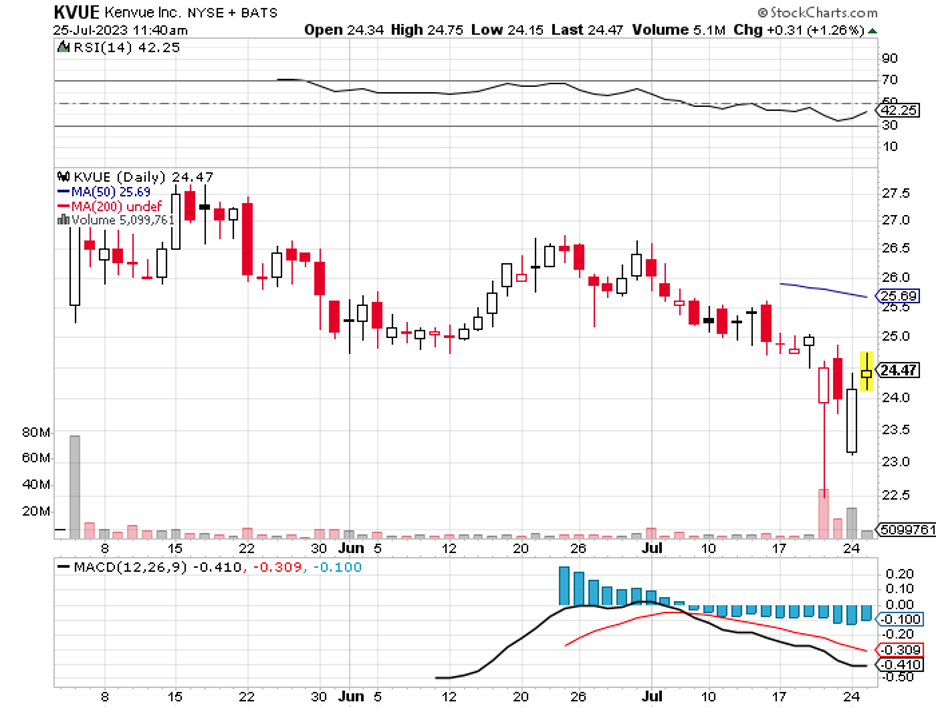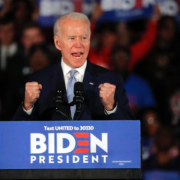Investing in Necessities
Everyone knows that Warren Buffett was schooled by the one and only Benjamin Graham. His game was easy-peasy early on — he hunted for dirt-cheap companies in relation to their assets, snagged them, and played the waiting game until the market woke up and realized their true worth. This was the good old 'cigar butt' investing.
It took Charlie Munger, Buffett's partner-in-crime, to shake things up. Munger nudged Buffett to eye high-quality companies with a thick competitive buffer that could weather long stretches of time.
Now with Johnson & Johnson's (JNJ) recent spinoff of Kenvue (KVUE), it seems the investment gods have dished up just the kind of opportunity Munger and Buffett would drool over.
JNJ is rolling out a red carpet, enticing its investors to trade their shares for most of its stake in Kenvue, the consumer division it made public in May.
If you're invested in JNJ, consider looking into this proposition. We're talking about a potential $35 billion transaction. Actually, JNJ is practically dangling a carrot, offering its holders $107 in Kenvue stock for every $100 in JNJ stock, capped, of course.
Basically, the JNJ deal lets holders swap all, some, or zip of their shares for Kenvue. It's a limited-time offer, expiring on August 18, with the price nailed down between August 14 to 16.
Interestingly, the Big Pharma company opted to play the game of 'voluntary exchange offer,' or 'split-off' in Wall Street jargon. A bit more elusive than your garden-variety spinoff, but trust me, it has its charm.
Why, you ask? This method tends to tighten the share count, beefing up the earnings per share.
And here's the sweetener: split-offs usually come with perks. The parent company tends to sprinkle a little discount magic for investors who decide to trade their old shares for the shiny new spinoff ones.
So, what could investors expect from Kenvue?
When it comes to its financial muscle, Kenvue's flexing a robust $20 billion in equity. The balance sheet displays a formidable $35 billion in assets squaring off against a $15 billion debt.
The first quarter has set the pace, projecting an annual revenue run rate of a cool $15.2 billion, and the operating cash flow isn't too shabby either, clocking in at $3.2 billion.
Kenvue's market valuation stands around 18 times its forecasted earnings for 2023, yielding a sweet 3.4%. That's a smidge more than J&J's yield of 2.8%.
Sure, Kenvue may not be sprinting in the high-growth lane — with earnings growth likely to pace in the mid-single digits post-2023 — but it holds a rock-solid portfolio of consumer health brands we've all grown to trust. Bonus? It trades at a discount compared to its closest peer, Haleon (HLN), GlaxoSmithKline’s (GSK) spinoff company.
Kenvue boasts a roster of brand-name products that people can't live without, and this constant demand spells nothing but growth. This spinoff is the proud holder of household names like Tylenol, Listerine, and Band-Aid.
In essence, Kenvue comes off as a Warren Buffett-type business that's up for grabs at a seemingly bargain price.
Consider for a moment why Buffett is so cozy with his long-standing stake in Coca-Cola (KO). Coke quenches the world's thirst with its myriad beverages, winning over brand loyalty and securing repeat purchases like it's a walk in the park.
My investment angle on Kenvue draws a parallel here, with a twist: Kenvue's products are absolute necessities, not just something you treat yourself to. That fact alone makes it even more appealing to me.
The company also disclosed a promising earnings range of $1.26 to $1.31 per share, with sales growth itching to hit a respectable 5%. The cherry on top? They're starting a quarterly dividend at 20 cents a share.
Now, you might be wary of growth prospects stagnating – let's face it, there's a limit to how many Band-Aids and Tylenol a household will need, right?
But here's where the plot thickens: the fine folks over at healthcare firm IQVIA (IQV) made quite the compelling argument that the over-the-counter drug market is expected to grow by a hearty 6.1% until 2025.
With a product lineup that's nothing short of a hit with consumers, a sturdy financial standing, and a rosy outlook for growth in the market it caters to, Kenvue is shaping up to be quite the catch for investors.
Of course, there are possible risks, such as a looming recession prompting even the most brand-loyal customers to opt for generic alternatives or management falling short on growth plans. That said, these potential drawbacks are dwarfed by the massive upsides of investing in Kenvue.
I think it's about time you give Kenvue some serious thought.


